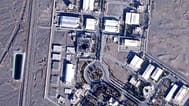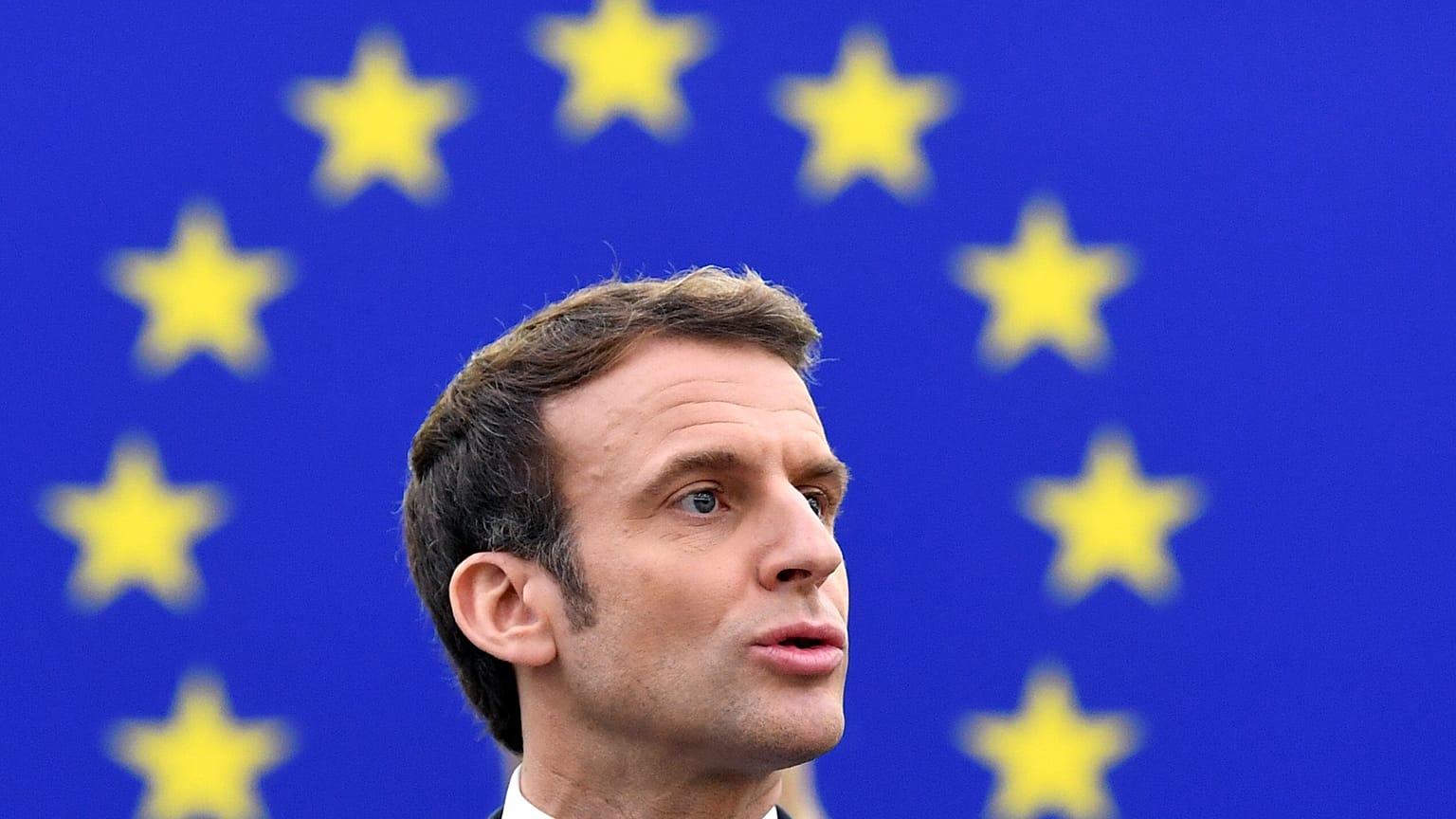Emmanuel Macron's ambitious agenda can mark the beginning of a new stage in Europe’s development, writes Professor Alberto Alemanno.
"The year 2022 must be a turning point for Europe," French President Emmanuel Macron said in his New Year's Eve national address.
As France takes over the rotating six-month presidency of the EU Council in an unprecedented favourable moment for EU integration and with a clear integrationist agenda, we have reason to believe his words.
Under a motto revealing a heavy pre-electoral influence ("Reforming Europe to make France progress") prompted by the country's forthcoming presidential elections, Macron intends to push forward the consolidation of a unified European geopolitical power.
But beyond his great promises, what can we realistically expect from France's EU presidency coinciding with its presidential elections at this delicate moment for Europe’s integration?
The 2022 French Presidency of the EU Council is set to go down in history as a moment of truth for the bloc. As such, it could mark the beginning of a new stage in Europe’s development. And yet, despite the vast majority support that the European Parliament has thrown behind France's ambitious vision, this is not a risk-free endeavour.
First, this "Uber" Euro-presidency is not only set to Europeanise the domestic political debate – similarly to what occurred in France in 2017 – but also Gallicise the European agenda to an unprecedented extent. Macron’s speech before the European Parliament offered a glimpse of this dual dynamic. It gave a preview of not only the national electoral debate that will be preceding the French presidential elections but also of the broader transnational political conversation that might follow.
Macron was accused by rivals of using the Council presidency as a springboard toward a reelection bid, but those very same rivals used the parliament's plenary as a platform for their national electoral campaigns. Ultimately, it became impossible to discern what was European and what was national in the heated exchange of views inside the 705-member hemicycle.
Contrary to what French MEPs keep repeating, it would be artificial to continue pretending that the national and European spheres are separate political entities when, in reality, the two largely overlap. This realisation will be further accelerated if one considers that the French EU presidency will -- by design -- coincide with the conclusion of the ongoing Conference on the Future of Europe, an initiative likely to further contribute to putting Europe at the centre of both the French and national political debates in the months to come.
In addition, the French presidency coincides with other major consequential moments for the continent’s direction, from the kick-off of the new German coalition government to the upcoming elections in Portugal, Slovenia and, more critically, Hungary, which together will further blend European themes with the national electoral conversations.
This extraordinary convergence of circumstances, when combined with the ongoing pandemic as well as the geopolitical tensions alongside the Ukrainian border, render the French EU presidency qualitatively different from previous ones.
Second, the temporal overlap between the EU presidency and the domestic presidential race is set to act as a constraint at best and a handicap at worst for Paris and its ability to act as a facilitator among domestic interests. This could prove problematic in a moment of EU integration characterised by deep divisions on fundamental values, as epitomised by the current rule of law crisis and the inability of the von der Leyen Commission to hold governments accountable for their manifest departure from their legal obligations.
The choice of Europe as the privileged battleground for the run to the presidency is therefore set to lead to an unprecedented polarisation both within and outside France, notably in those countries like Hungary and Slovenia having national elections. Amid media and public attention, the European subject is set to become one of the major points of contention among national candidates and their respective forces. This trend seems already at play with virtually all major contenders, from Marine Le Pen and Éric Zemmour to Valérie Pécresse.
In particular, Macron's militant posture towards EU integration may foster -- as opposed to alleviate -- tensions with rebellious member states, such as Hungary, Poland and Slovenia, and even alienate them (and others) from the ongoing Conference on the Future of Europe to a point of no return. Unless this simmering tension is addressed, the presidency’s effectiveness in advancing and steering a variety of complex policy files -- from Fit for 55 to the EU Digital Package -- will be tarnished.
While both the Quirinale Treaty between France and Italy and the new German coalition government appear to favour Macron's agenda by leveraging on and mobilising these countries’ European affinities, they may also produce an unintended consequence: that of further marginalising the unruly states by pushing towards more radical positions vis-à-vis their moderate, Western colleagues. The dynamic may not only weaken the French presidency in its expected facilitator role but also hinder its well-intentioned integrationist push at a delicate moment of the EU project in which a revision of the fiscal rules is on the table. Moreover, following the Herculean American recovery plan which dwarfs the EU’s more modest equivalent, France might find itself championing a second recovery plan spanning the upcoming decade.
All these new and unplanned fronts for the EU presidency will inevitably intersect with the persisting rule of law crisis, which will largely define the legacy of Ursula von der Leyen's administration, not to mention that of Macron’s (first) mandate as president.
At the same time, the unprecedented politicisation of the French presidency and its potentially disruptive spillover effects across the continent, especially when combined with the experimental nature of the ongoing Conference on the Future of Europe, might serve to shed light – both within and outside France – on major, unsolved challenges facing the continent.
Albeit difficult and jumpy, this French-led journey for the European continent may trigger – as symbolised by Macron’s speech in Strasbourg – a healthy, refreshing, though disturbing, transnational conversation about what Europe should stand for today. That conversation is set to transcend the temporal limits of the French EU presidency and lay the foundations for the Europe of tomorrow.
-
Alberto Alemanno is Jean Monnet Professor of EU law at HEC Paris and the founder of the civic startup The Good Lobby.















